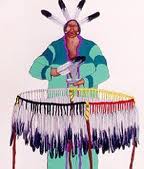 I am pleased to announce the release of David Walker’s new book Coyote’s Swing, in which he condemns the U.S. mental health system’s partnership with the pharmaceutical industry and presents research on this system’s history of complicity with Native oppression.
I am pleased to announce the release of David Walker’s new book Coyote’s Swing, in which he condemns the U.S. mental health system’s partnership with the pharmaceutical industry and presents research on this system’s history of complicity with Native oppression.
Here is the press release, author biography, and a review (NB. I have broken up some of the long paragraphs to make online reading easier):
Psychologist’s Experiences and Research Expose How Western Mental Health Ideology Threatens Native Lives and Culture
‘PULLMAN, Wash.— David Edward Walker combines firsthand experiences as a consulting psychologist with rare history and sociocultural critique to expose how the U.S. mental health system reframes Native American reactions to oppression and marginalization into “mental disorders” and “mental illness.”

 ‘WE SHALL REMAIN was created to address the effects of historical trauma in our tribal communities. Many times, these untended wounds are at the core of much of the self-inflicted pain experienced in Native America. Much like fire, this pain can either be devastatingly destructive or wisely harnessed to become fuel that helps us to rise up and move forward in life with joy, purpose and dignity.’
‘WE SHALL REMAIN was created to address the effects of historical trauma in our tribal communities. Many times, these untended wounds are at the core of much of the self-inflicted pain experienced in Native America. Much like fire, this pain can either be devastatingly destructive or wisely harnessed to become fuel that helps us to rise up and move forward in life with joy, purpose and dignity.’


